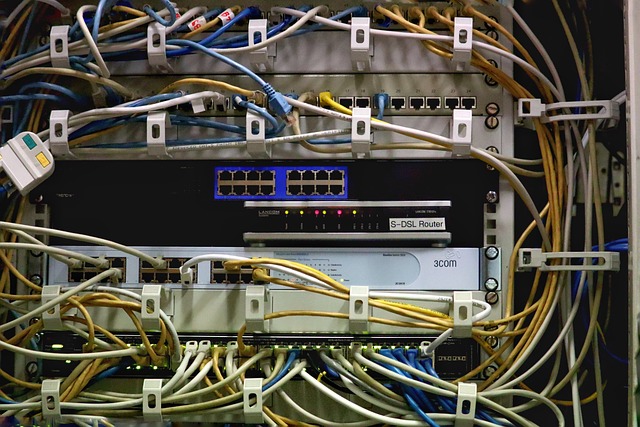# Future Horizons: The Transformative Role of AI Technology in Shaping Our Tomorrow
As we stand on the precipice of a new era defined by artificial intelligence (AI), it is crucial to understand how this technology is poised to transform various aspects of our lives. The integration of AI into everyday processes is not merely a trend; it represents a fundamental shift in how we interact with the world around us. From healthcare to education, and even to the way we conduct business, AI’s potential is vast and multifaceted. This article explores the transformative role of AI technology in shaping our future, examining its implications across different sectors.
## Revolutionizing Healthcare
One of the most significant areas where AI is making an impact is healthcare. Machine learning algorithms can analyze vast amounts of medical data, enabling healthcare professionals to make more informed decisions. For instance, AI systems can process imaging data, such as X-rays and MRIs, with remarkable accuracy, often surpassing human radiologists in detecting anomalies. This capability not only enhances diagnostic precision but also reduces the time required for analysis, ultimately leading to faster treatment for patients.
Moreover, personalized medicine is becoming a reality thanks to AI. By analyzing genetic information and lifestyle data, AI can help tailor treatments to individual patients, improving outcomes and reducing side effects. The ability to predict how a patient will respond to a specific medication is revolutionizing the way we approach treatment plans. As a result, healthcare providers can move from a one-size-fits-all model to a more nuanced and effective approach, ensuring that patients receive the best possible care.
In addition to diagnostics and personalized treatments, AI is also streamlining administrative processes within healthcare systems. Automation of routine tasks, such as appointment scheduling and billing, allows healthcare professionals to focus more on patient care rather than paperwork. Consequently, the overall efficiency of healthcare delivery improves, leading to better patient experiences and outcomes.
## Transforming Education
Education is another domain experiencing a seismic shift due to AI technology. Traditional teaching methods are being augmented by intelligent tutoring systems that adapt to the individual learning pace and style of each student. These systems utilize data analytics to identify areas where students struggle and provide targeted resources to help them improve. Such personalized learning experiences can significantly enhance student engagement and retention of knowledge.
Furthermore, AI is facilitating access to education in ways previously unimaginable. Online learning platforms powered by AI can provide quality education to students in remote or underserved areas. By analyzing the learning habits and preferences of users, these platforms can recommend tailored courses and materials, making education more accessible and inclusive. This democratization of knowledge is crucial for fostering a more equitable society.
Interestingly, AI’s role in education extends beyond students. Educators also benefit from AI-driven insights that help them refine their teaching strategies. By analyzing classroom dynamics and student performance data, AI can provide feedback on teaching effectiveness, enabling educators to adapt their methods to better meet the needs of their students. This continuous loop of feedback and improvement creates a more dynamic and responsive educational environment.
## Redefining Business Operations
The business landscape is undergoing a transformation as AI technologies reshape operational frameworks. Companies are increasingly leveraging AI for data analysis, enabling them to make data-driven decisions that enhance efficiency and profitability. Predictive analytics, powered by AI, allows businesses to forecast trends and consumer behavior, facilitating proactive strategies that can significantly improve market positioning.
Moreover, customer service is being revolutionized through the implementation of AI chatbots and virtual assistants. These tools can handle a multitude of customer inquiries simultaneously, providing instant support and freeing human agents to focus on more complex issues. The result is a more responsive and efficient customer service experience, which is critical in an era where consumer expectations are higher than ever.
In addition to enhancing customer interactions, AI is also optimizing supply chain management. Machine learning algorithms can analyze supply chain data to identify inefficiencies and predict potential disruptions. By anticipating these challenges, businesses can take proactive measures to mitigate risks, ensuring smoother operations and reduced costs. This level of foresight is invaluable in today’s fast-paced and often unpredictable market.
## The Ethical Considerations of AI
While the potential benefits of AI are immense, it is essential to address the ethical considerations that accompany its widespread adoption. The deployment of AI technologies raises questions about privacy, bias, and accountability. As algorithms become more integrated into decision-making processes, ensuring that they are fair and transparent becomes paramount. The risk of bias in AI systems, often stemming from the data they are trained on, can lead to discriminatory outcomes, particularly in areas like hiring and law enforcement.
Moreover, the implications of job displacement due to automation cannot be overlooked. As AI takes over routine tasks, there is a growing concern about the future of work and the need for reskilling the workforce. Preparing for this shift requires a concerted effort from governments, educational institutions, and businesses to create pathways for workers to transition into new roles that AI cannot easily replicate.
In addition to these challenges, the question of accountability in AI decision-making is critical. If an AI system makes a mistake, determining who is responsible can be complex. Establishing clear guidelines and regulations surrounding AI usage is essential to foster public trust and ensure that the technology is used ethically and responsibly.
## Conclusion
The transformative role of AI technology in shaping our tomorrow is undeniable. As we explore its potential in healthcare, education, and business, it becomes evident that AI has the capacity to enhance efficiency, improve outcomes, and democratize access to resources. However, navigating the ethical landscape surrounding AI adoption will be crucial in realizing its full potential. By addressing these challenges head-on, we can harness the power of AI to create a future that is not only technologically advanced but also equitable and just. As we look to the future, embracing AI responsibly will be key to unlocking its transformative power and ensuring a better tomorrow for all.











